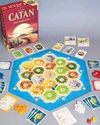Over the years, the conflict between man and elephant in the continuously receding forests of Assam has increased alarmingly. We look at the magnitude of the problem, causes and possible solutions.

On a pitch dark winter night, an elephant tries to cross the road. However, the driver of the passenger train reacts late and a moment later, the pachyderm finds itself grievously injured on the ground. A tribal woman had gone inside the Laokhowa Forest Reserve in Nagaon to collect firewood. She didn’t return but her disfigured body was found later. This was the result of her coming in the way of an angry herd. Both the above situations are being witnessed in Assam. Human-elephant conflict is nothing new but this year, it has reached alarming proportions. Altogether 70 elephants have died this year and causes vary from train accidents to poisoning and electrocution, according to the Forest Department.
Unnatural deaths account for 48 jumbo lives though conservationists claim the figure may go up to 70 if trans boundary fatalities are taken into account. Injured elephants often stray into neighbouring states and even into Bhutan and Bangladesh. A total of 48 people have been trampled to death by elephants till November this year, a Forest Department estimate revealed. This is exactly the kind of war where everyone loses. Whether an elephant dies or a human, it is nature which is losing.
Looking at Reasons for the Conflict
Assam, which has the highest number of wild elephants in India—up from 5,246 in 2002 to 5,620 in 2011—and over one third of its area is under forests, has witnessed hundreds of human-elephant conflicts. Between 2006 and 2016, wild elephants have killed 785 people in the state, while 225 pachyderms has fallen victim to poaching, speeding trains, poisoning, electrocution, etc. between 2001 and 2014.
Denne historien er fra January 2018-utgaven av Eclectic Northeast.
Start din 7-dagers gratis prøveperiode på Magzter GOLD for å få tilgang til tusenvis av utvalgte premiumhistorier og 9000+ magasiner og aviser.
Allerede abonnent ? Logg på
Denne historien er fra January 2018-utgaven av Eclectic Northeast.
Start din 7-dagers gratis prøveperiode på Magzter GOLD for å få tilgang til tusenvis av utvalgte premiumhistorier og 9000+ magasiner og aviser.
Allerede abonnent? Logg på

Time For Home Improvement!
Here are some home improvement projects that even absolute beginners will get right

Coping With Anxiety
Here are a few ways that you can deal with anxiety that you may be feeling because of the on-going pandemic

The Spread Continues
According to official reports, African Swine Fever has killed more than 1,700 pigs in Mizoram

Take the Unexplored Path
If you are looking for an underrated destination to explore this year, plan a trip to the charming town of Likabali

The Lotus Blooms Again
The Congress-led grand alliance bites dust in Assam as BJP retains power again in 2021

Painting Heritage
An up-and-coming artist from Nagaland wants to share his culture and heritage through works of art

MUSINGS OF A SOLDIER: TIT-BITS
People often ask me about my life out of uniform. Honestly, I have had no problems. Not so far. Instead, I find it quite refreshing. No routine, no parades, no briefing, no impending operations. Having donned the uniform since the age of thirteen until I hung up my boots last year, could I ever visualize life out of uniform? Not really. But, as I said, the transition has been quite smooth–no hang-overs, no regrets. People have been very positive in their interactions. Government departments have been responsive whenever I have approached for assistance.The genuine respect for the uniform is quite evident and it makes my heart swell with pride. Arunachal, to that extent, is the most nationalistic state in the country, I daresay. It has been kind of a revelation for me to experience the freedom of being a common man in an environment of positivity!

Look Good, Feel Good!
Here are four cruelty-free makeup brands that deserve a spot in your vanity bag

Face-to-Face With Conflict
In ‘Bulletproof: A Journalist’s Notebook on Reporting Conflict’, award winning journalist and author Teresa Rehman shares her experience of reporting from a conflict-ridden region

Bringing the Family Together
Tabletop games will encourage your family to take some time away from the screen and reconnect with each other